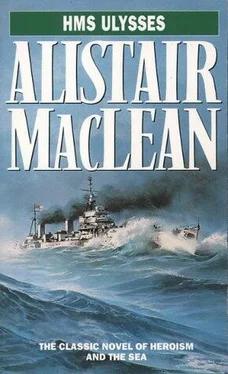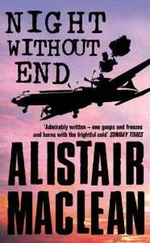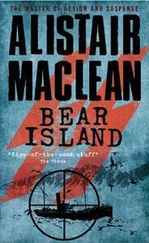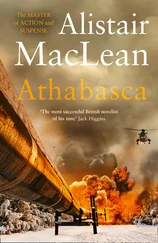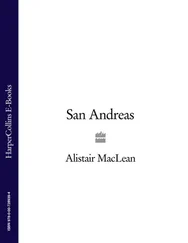Alistair MacLean - HMS Ulysses
Здесь есть возможность читать онлайн «Alistair MacLean - HMS Ulysses» — ознакомительный отрывок электронной книги совершенно бесплатно, а после прочтения отрывка купить полную версию. В некоторых случаях можно слушать аудио, скачать через торрент в формате fb2 и присутствует краткое содержание. Жанр: prose_military, на английском языке. Описание произведения, (предисловие) а так же отзывы посетителей доступны на портале библиотеки ЛибКат.
- Название:HMS Ulysses
- Автор:
- Жанр:
- Год:неизвестен
- ISBN:нет данных
- Рейтинг книги:3 / 5. Голосов: 1
-
Избранное:Добавить в избранное
- Отзывы:
-
Ваша оценка:
- 60
- 1
- 2
- 3
- 4
- 5
HMS Ulysses: краткое содержание, описание и аннотация
Предлагаем к чтению аннотацию, описание, краткое содержание или предисловие (зависит от того, что написал сам автор книги «HMS Ulysses»). Если вы не нашли необходимую информацию о книге — напишите в комментариях, мы постараемся отыскать её.
HMS Ulysses — читать онлайн ознакомительный отрывок
Ниже представлен текст книги, разбитый по страницам. Система сохранения места последней прочитанной страницы, позволяет с удобством читать онлайн бесплатно книгу «HMS Ulysses», без необходимости каждый раз заново искать на чём Вы остановились. Поставьте закладку, и сможете в любой момент перейти на страницу, на которой закончили чтение.
Интервал:
Закладка:
A second later the leading plane in the middle disintegrated in a searing burst of flame-a direct hit on its torpedo warhead. A third plane, behind and to the west, sheered off violently to the left to avoid the hurtling debris, and the subsequent dropping of its torpedo was no more than an empty gesture. It ran half a cable length behind the Ulysses, spent itself in the empty sea beyond.
Two bombers left now, pressing home their attack with suicidal courage, weaving violently from side to side to avoid destruction. Two seconds passed, three, four-and still they came on, through the falling snow and intensely heavy fire, miraculous in their immunity. Theoretically, there is no target so easy to hit as a plane approaching directly head on: in practice, it never worked out that way. In the Arctic, the Mediterranean, the Pacific, the relative immunity of the torpedo-bombers, the high percentage of successful attacks carried out in the face of almost saturation fire, never failed to confound the experts. Tension, over-anxiety, fear-these were part of the trouble, at least: there are no half measures about a torpedo-bomber-you get him or he gets you. And there is nothing more nerve-racking-always, of course, with the outstanding exception of the screaming, near-vertical power-dive of the gull-winged Stuka dive-bomber-than to see a torpedo-bomber looming hugely, terrifyingly over the open sights of your gun and know that you have just five inexorable seconds to live...
And with the Ulysses, of course, the continuous rolling of the cruiser in the heavy cross-sea made accuracy impossible.
These last two bombers came in together, wing-tip to wing-tip. The plane nearer the bows dropped its torpedo less than two hundred yards away, pulled up in a maximum climbing turn to starboard, a fusillade of light cannon and machine-gun shells smashing into the upper works of the bridge: the torpedo hit the water obliquely, porpoised high into the air, then crashed back again nose first into a heavy wave, diving steeply into the sea: it passed under the Ulysses.
But seconds before that the last torpedo-bomber had made its attack-made its attack and failed and died. It had come roaring in less than ten feet above the waves, had come straight on without releasing its torpedo, without gaining an inch in height, until the crosses on the upper sides of the wings could be clearly seen, until it was less than a hundred yards away. Suddenly, desperately, the pilot had begun to climb: it was immediately obvious that the torpedo release mechanism had jammed, either through mechanical failure or icing in the intense cold: obviously, too, the pilot had intended to release the torpedo at the last minute, had banked on the sudden decrease of weight to lift him over the Ulysses. The nose of the bomber smashed squarely into the for'ard funnel, the starboard wing shearing off like cardboard as it scythed across the after leg of the tripod mast. There was an instantaneous, blinding sheet of gasoline flame, but neither smoke nor explosion. A moment later the crumpled, shattered bomber, no longer a machine but a torn and flaming crucifix, plunged into the hissing sea a dozen yards away. The water had barely closed over it when a gigantic underwater explosion heeled the Ulysses far over to starboard, a vicious hammer-blow that flung men off their feet and shattered the lighting system on the port side of the cruiser.
Commander Turner hoisted himself painfully to his feet, shook his head to clear it of the cordite fumes and the dazed confusion left by cannon shells exploding almost at arm's length. The shock of the detonating torpedo hadn't thrown him to the duckboards-he'd hurled himself there five seconds previously as the flaming guns of the other bomber had raked the bridge from point-blank range.
His first thought was for Vallery. The Captain was lying on his side, crumpled strangely against the binnacle. Dry-mouthed, cold with a sudden chill that was not of that Polar wind, Turner bent quickly, turned him gently over.
Vallery lay still, motionless, lifeless. No sign of blood, no gaping wound-thank God for that! Turner peeled off a glove, thrust a hand below duffel coat and jacket, thought he detected a faint, a very faint beating of the heart. Gently he lifted the head off the frozen slush, then looked up quickly. The Kapok Kid was standing above him.
"Get Brooks up here, Pilot," he said swiftly. "It's urgent!"
Unsteadily, the Kapok Kid crossed over the bridge. The communication rating was leaning over the gate, telephone in his hand.
"The Sick Bay, quickly!" the Kapok Kid ordered. "Tell the Surgeon Commander..." He stopped suddenly, guessed that the man was still too dazed to understand. "Here, give me that phone!" Impatiently, he stretched out his hand and grabbed the telephone, then stiffened in horror as the man slipped gradually backwards, extended arms trailing stiffly over the top of the gate until they disappeared. Carpenter opened the gate, stared down at the dead man at his feet: there was a hole the size of his gloved fist between the shoulder-blades.
He lay alongside the Asdic cabinet, a cabinet, the Kapok Kid now saw for the first time, riddled and shattered with machine-gun bullets and shells. His first thought was the numbing appreciation that the set must be smashed beyond recovery, that their last defence against the U-boats was gone. Hard on the heels of that came the sickening realisation that there had been an Asdic operator inside there... His eyes wandered away, caught sight of Chrysler rising to his feet by the torpedo control. He, too, was staring at the Asdic cabinet, his face drained of expression. Before the Kapok Kid could speak, Chrysler lurched forward, fists battering frantically, blindly at the jammed door of the cabinet. Like a man in a dream, the Kapok Kid heard him sobbing.... And then he remembered. The Asdic operator-his name was Chrysler too. Sick to his heart, the Kapok Kid lifted the phone again....
Turner pillowed the Captain's head, moved across to the starboard corner of the compass platform. Bentley, quiet, unobtrusive as always, was sitting on the deck, his back wedged between two pipes, his head pillowed peacefully on his chest. His hand under Bentley's chin, Turner gazed down into the sightless eyes, the only recognisable feature of what had once been a human face. Turner swore in savage quiet, tried to prise the dead fingers locked round the hand-grip of the Aldis, then gave up. The barred beam shone eerily across the darkening bridge.
Methodically, Turner searched the bridge-deck for further casualties. He found three others and it was no consolation at all that they must have died unknowing. Five dead men for a three-second burst-a very fair return, he thought bitterly. Standing on the after ladder, his face stilled in unbelief as he realised that he was staring down into the heart of the shattered for'ard funnel. More he could not see: the boat deck was already blurred into featureless anonymity in the dying glare of the last of the flares. He swung on his heel, returned to the compass platform.
At least, he thought grimly, there was no difficulty in seeing the Stirling. What was it that he had said-said less than ten minutes ago?
"I wish they'd have a go at the Stirling once in a while." Something like that. His mouth twisted. They'd had a go, all right. The Stirling, a mile ahead, was slewing away to starboard, to the south-east, her for'ard superstructure enveloped in a writhing cocoon of white flame. He stared through his night glasses, tried to assess the damage; but a solid wall of flame masked the superstructure, from the fo'c'sle deck clear abaft the bridge. He could see nothing there, just nothing-but he could see, even in that heavy swell, that the Stirling was listing to starboard. It was learned later that the Stirling had been struck twice: she had been torpedoed in the for'ard boiler-room, and seconds later a bomber had crashed into the side of her bridge, her torpedo still slung beneath the belly of her fuselage: almost certainly, in the light of the similar occurrence on the Ulysses, severe icing had jammed the release mechanism. Death must have been instantaneous for every man on the bridge and the decks below; among the dead were Captain Jeffries, the First Lieutenant and the Navigator.
Читать дальшеИнтервал:
Закладка:
Похожие книги на «HMS Ulysses»
Представляем Вашему вниманию похожие книги на «HMS Ulysses» списком для выбора. Мы отобрали схожую по названию и смыслу литературу в надежде предоставить читателям больше вариантов отыскать новые, интересные, ещё непрочитанные произведения.
Обсуждение, отзывы о книге «HMS Ulysses» и просто собственные мнения читателей. Оставьте ваши комментарии, напишите, что Вы думаете о произведении, его смысле или главных героях. Укажите что конкретно понравилось, а что нет, и почему Вы так считаете.
